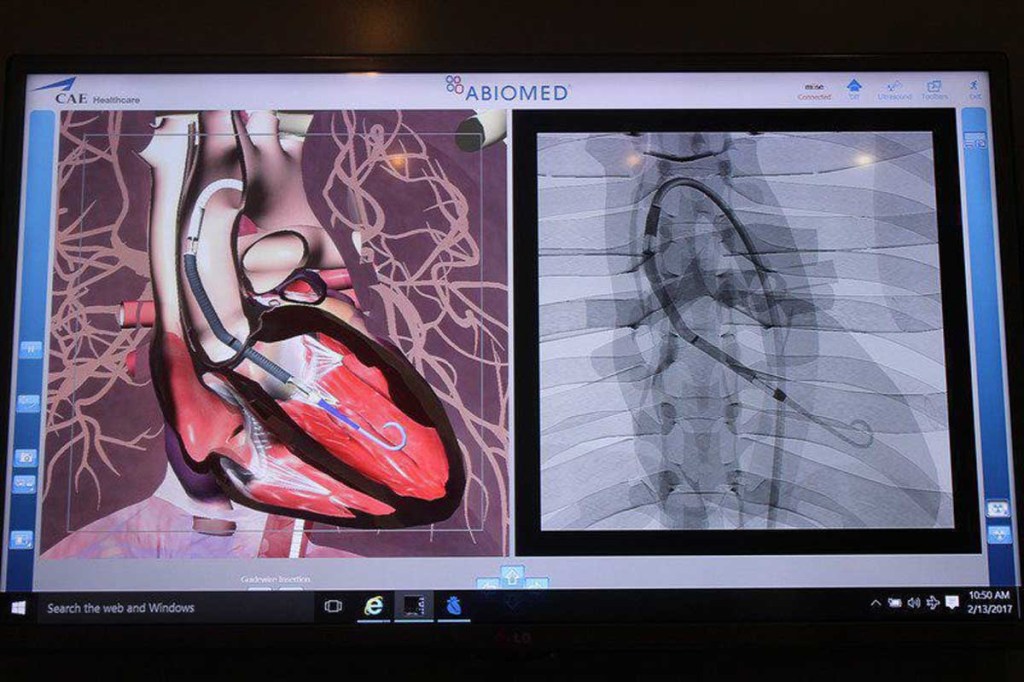Mississippi health workers get hands-on with world’s smallest heart pump
Published 3:30 pm Wednesday, February 15, 2017

- The display on the left depicts — in real time — the Impella pump inside a patient while the display on the right shows an x-ray of the patient's body during the procedure. Staff at Anderson Regional Health System in Meridian, Mississippi, could use this display to observe the motor as they inserted it into the mannequin patient's body.
MERIDIAN, Miss. — Patients in Mississippi previously turned away for heart surgery may have another option in the Impella 2.5, the world’s smallest heart pump — now available for elderly, unstable or bypass recipient patients.
Cardiologists, intensive care unit staff, registered nurses and staff from the Catheterization Lab at Anderson Regional Health System in Meridian, Mississippi, on Monday received hands-on, on-site training in the Abiomed Mobile Learning Lab on the Impella.
Trending
Mannequins allowed staff to try inserting the heart pump, while screens showed the heart pump in action.
A trained cardiologist inserts the Impella, smaller than the width of a pencil, in the upper thigh and guides the motor into the left ventricle. The motor then pushes blood from the left ventricle into the aorta, relieving pressure on the strained heart muscle.
Available in the United States since 2008 and cleared for general use across the country in 2009, the Impella has also been used in more than 40 countries, including Europe and Canada. By 2013, the breakthrough technology had been used in more than 15,000 procedures, offering patients a healthier chance at life.
Meridian’s Anderson Regional Medical Center applied to be one of two hospitals in Mississippi that received training from the mobile lab, transported on an 18-wheeler truck. Jennifer Bell, the director of cardiovascular services, said she hopes to expand the existing program to more staff.
“We’ve had it since the summer,” Bell said, noting that Anderson had two cardiologists already performing the procedure. “And we’re the only regional hospital with this procedure.”
The mobile lab only introduces the procedure, and cardiologists must take additional training before they can insert the pump independently. However, the mobile lab does help staff recognize patients who could be candidates for the procedure, Bell said.
Patients do not need general anesthesia for this procedure, typically spending 2 to 6 hours with the pump inside under a conscious sedation or “twilight sleep.”
“Sometimes the patients don’t even remember what happened,” Andrew Lee, an RN with the Catheterization Lab, said.
Lee and fellow RNs Daniel Tucker, Brittany Pippin and Ashley Downing all gathered around to demonstrate the insertion of the pump. Typically, a patient would spend the night at the hospital, returning home the following day.
“We can fix much more complex issues (with the assistance of the pump),” Lee explained, such as a large lesion. “There’s a large population of patients that need it…but it’s still new to us.”
Lee and his colleagues estimated that they saw one to four Impella procedures a month, but that with the training that number could grow.
“Our plan is to expose more cardiologists to the procedure,” Bell said. “It’s good for our staff and for our patients to get this high-quality, latest, greatest care.”
Downard writes for the Meridian, Mississippi Star.


